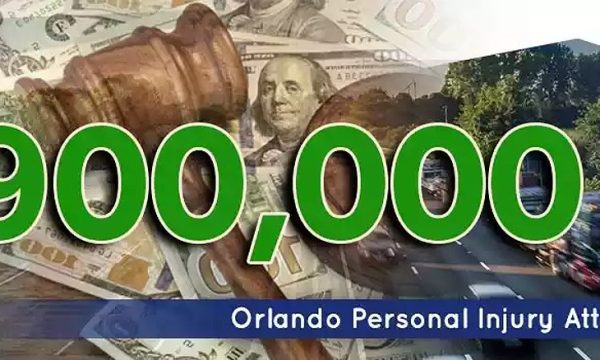As an active-duty service member, I know firsthand how challenging it can be to find a mortgage that truly understands your unique circumstances. That’s why I’m so passionate about VA home loan financing. It’s a program designed specifically for veterans and active-duty personnel, offering significant advantages that can make the dream of homeownership a reality. This guide will walk you through everything you need to know about VA home loan financing, from eligibility requirements to the application process, so you can confidently navigate this important financial decision.
Toc
- 1. Understanding VA Home Loan Financing
- 1.1. What is a VA Home Loan?
- 1.2. Benefits of VA Home Loan Financing
- 1.3. Eligibility Requirements for VA Home Loan Financing
- 1.4. Service Requirements
- 1.5. Credit and Income Considerations
- 1.6. Property Eligibility
- 1.7. The VA Home Loan Application Process
- 1.8. Obtaining a Certificate of Eligibility (COE)
- 1.9. Finding a VA-Approved Lender
- 2. Related articles 01:
- 3. Key Considerations for VA Home Loan Financing
- 4. Tips for Success with VA Home Loan Financing
- 5. Related articles 02:
- 6. FAQ
- 7. Conclusion
Understanding VA Home Loan Financing
When it comes to purchasing a home, the VA home loan program is a game changer for military personnel. But what exactly is it?
What is a VA Home Loan?
VA home loans are mortgages guaranteed by the U.S. Department of Veterans Affairs (VA). Unlike conventional loans, which can feel like navigating a maze blindfolded, VA loans are designed to provide a smoother path for veterans and active-duty service members. The VA backs a portion of the loan, which means lenders can offer more favorable terms, such as lower interest rates and no down payment requirements. Imagine buying a home without needing to scrape together thousands of dollars for a down payment—sounds like a dream, right? Well, for many service members, it’s a reality.
Benefits of VA Home Loan Financing
So, why should you consider VA home loan financing? Let’s break down some of the standout benefits:
- No Down Payment: VA loans often allow for 100% financing, which means you can purchase a home without putting any money down upfront. This can be a massive relief, especially for first-time homebuyers who are already juggling the financial strains of military life.
- No Private Mortgage Insurance (PMI): Unlike conventional loans, VA loans do not require PMI, a monthly fee that can add a significant amount to your mortgage payment. This means more money stays in your pocket each month, allowing you to allocate funds toward other important expenses.
- Competitive Interest Rates: VA loans typically offer lower interest rates than conventional mortgages, which can result in substantial savings over the life of the loan. Who doesn’t want to save money while investing in their future?
- Flexible Loan Terms: VA loans come with a variety of loan terms, giving you the flexibility to choose what works best for your financial situation. Whether you prefer a 15-year or a 30-year mortgage, there’s likely an option that fits your needs.
Eligibility Requirements for VA Home Loan Financing
Before you dive into the exciting world of home buying, it’s essential to understand the eligibility requirements for VA home loan financing. Here’s what you need to know.
Service Requirements
To qualify for a VA loan, active-duty service members must meet specific length-of-service criteria. Generally, this means serving at least 90 consecutive days during wartime or 181 days during peacetime. Members of the National Guard or Reserve may qualify after serving six years or being called to active duty for at least 90 days. The VA wants to ensure that those who have made significant contributions to our national defense can benefit from this program.
Credit and Income Considerations
While the VA doesn’t set a minimum credit score for VA loans, individual lenders may have their own standards. A credit score of 620 or higher is often recommended to improve your chances of approval. Lenders will also look at your income and debt-to-income (DTI) ratio to determine if you can manage monthly payments effectively. Generally, a DTI ratio of up to 45% is acceptable, but this can vary by lender. This flexibility allows some leeway for borrowers with unique financial situations, making it more accessible for military families.
Property Eligibility
It’s important to note that the property you’re purchasing must serve as your primary residence. VA loans cannot be used for investment properties or vacation homes. Additionally, the property must meet the VA’s minimum property requirements (MPRs), ensuring it is safe, structurally sound, and habitable. A VA-approved appraiser will evaluate the property’s condition and value, so you can be sure that your new home meets the necessary standards.
The VA Home Loan Application Process
Now that you understand the benefits and eligibility criteria, let’s take a closer look at the steps involved in applying for a VA home loan.
Obtaining a Certificate of Eligibility (COE)
The first step in the application process is obtaining a Certificate of Eligibility (COE). This important document verifies your eligibility based on your military service. You can apply for a COE through the VA eBenefits portal or by mailing the necessary documentation to your regional VA loan center.

The COE is crucial because it confirms to lenders that you meet the service requirements for VA loan financing. The application process is relatively straightforward, requiring you to provide documentation such as your DD Form 214 or a statement of service from your commanding officer.
Finding a VA-Approved Lender
Choosing a lender experienced in VA loans is a critical step. Many national banks and mortgage companies offer VA loans, but it’s essential to compare interest rates, fees, and loan terms from multiple lenders. A lender familiar with VA financing can provide valuable guidance throughout the process and help you secure the best possible terms.
1. https://viralblogspost.com/mortgage-financing-for-self-employed
2. https://viralblogspost.com/mmoga-master-of-science-in-finance
3. https://viralblogspost.com/mmoga-masters-degree-in-finance
4. https://viralblogspost.com/mmoga-finance-and-accounting-outsourcing-companies
5. https://viralblogspost.com/local-roofing-companies-that-finance
When selecting a lender, consider their track record with VA loans and their understanding of the unique needs of military personnel. Some lenders even have dedicated teams for VA loans, offering specialized support and resources to help you along the way.
Pre-Approval and Home Search
Once you’ve selected a lender, obtaining pre-approval is essential. Pre-approval demonstrates your financial readiness to sellers and helps establish a realistic budget for your home purchase. This process involves submitting financial documents, including income verification and credit history, allowing the lender to assess how much you can afford.
With pre-approval in hand, you can confidently search for properties within your budget. This step also provides an advantage in a competitive market, as sellers often prefer buyers who have secured financing.
Loan Closing and Homeownership
The final steps in the VA home loan process involve closing on the mortgage. This includes signing loan documents and officially transferring ownership of the property. While VA loans don’t require PMI, be prepared to pay closing costs, which may include the VA funding fee.
During the closing process, it’s essential to review all documents carefully and ask questions if anything is unclear. Closing can be a complex process, but a knowledgeable lender and real estate agent can help navigate any challenges that may arise.

Key Considerations for VA Home Loan Financing
As you embark on your journey toward homeownership, here are some important factors to keep in mind regarding VA home loan financing.
VA Funding Fee
One key aspect of VA home loan financing is the VA funding fee. This one-time charge helps offset the cost of the VA loan program for taxpayers. The fee varies based on factors such as the type of loan, down payment amount, and whether you’ve used a VA loan before. The good news is that the funding fee can be financed into the loan amount, making it easier to manage upfront costs.
Exemptions from the funding fee may apply to certain individuals, such as those with service-related disabilities. It’s crucial to understand how the funding fee impacts your overall loan costs and to factor it into your budgeting.
Loan Limits and Entitlement
VA loan limits vary by county and are subject to change annually. While eligible veterans with full entitlement can borrow without limits, those with partial entitlement may face restrictions based on local loan limits. Understanding how entitlement affects your borrowing capacity is vital for prospective borrowers.
For 2024, the standard loan limit in most counties is $766,550, but this can go as high as $1,149,825 in high-cost areas. Consult with your lender to determine your specific entitlement and how it applies to your loan application.
Interest Rates and Refinancing Options
Interest rates for VA loans can fluctuate based on market conditions and individual borrower creditworthiness. VA loans can also be refinanced, providing options for lower interest rates or changing loan terms. Discuss refinancing opportunities with your lender to determine the best course of action.
A popular refinancing option is the Interest Rate Reduction Refinance Loan (IRRRL), which allows borrowers to lower their interest rate without the need for a new appraisal or credit check. This streamlined process makes it easier for veterans to take advantage of favorable market conditions.
Tips for Success with VA Home Loan Financing
To maximize the benefits of VA home loan financing, here are some practical strategies for active-duty military personnel.
1. https://viralblogspost.com/mmoga-newtek-small-business-finance
2. https://viralblogspost.com/stock-futures-yahoo-finance
3. https://viralblogspost.com/mmoga-financing-for-dental-implants
4. https://viralblogspost.com/mmoga-roofing-companies-that-finance
5. https://viralblogspost.com/mmoga-online-masters-in-finance
Building a Strong Credit Score
A solid credit score is essential for securing favorable loan terms. Focus on paying bills on time, keeping your credit utilization low, and regularly monitoring your credit reports for errors. These practices can enhance your creditworthiness and improve your chances of loan approval.
Consider setting up alerts for bill payments and utilizing budgeting apps to help maintain financial discipline. If you identify inaccuracies on your credit report, take immediate action to dispute them, as this can significantly impact your credit score.
Managing Finances and Debt
Effective financial management is crucial when preparing for a VA home loan. Create a budget and track your expenses to identify areas for improvement. Reducing high-interest debt can also enhance your debt-to-income ratio, making it easier to qualify for a loan.
Prioritize saving for emergencies, as unexpected expenses can arise during the home buying process. Establishing a solid financial foundation will not only help in securing a loan but also in maintaining stability after purchasing a home.
Working with a Real Estate Agent
Collaborating with a real estate agent experienced in VA loans can simplify the home buying process. An agent can provide valuable insights into property requirements and help navigate the VA appraisal process, ensuring a smoother experience for you.
Choosing an agent who understands the unique needs of military families can make a significant difference. They can offer guidance on neighborhoods, schools, and community resources that cater to the lifestyle of active-duty personnel.
FAQ
Q: Can I use a VA loan to buy a home in any location?
A: Yes, VA loans can be used to purchase homes nationwide, but the loan limit may vary by county.
Q: What if I don’t meet the minimum service requirements for a VA loan?
A: There are alternative financing options available for veterans who do not meet the service requirements.
Q: How long does it take to get approved for a VA loan?
A: The approval process can vary, but it typically takes 30 to 60 days.
Q: Can I use a VA loan to purchase a multi-unit property?
A: Yes, VA loans can be used to purchase up to a four-unit property, but one unit must be your primary residence.
Conclusion
VA home loan financing presents an incredible opportunity for active-duty military personnel to achieve homeownership without the typical hurdles associated with traditional financing. With benefits like no down payment, competitive interest rates, and limited closing costs, VA loans stand out as a practical option for service members. By understanding eligibility requirements, navigating the application process, and considering key financial factors, you can confidently pursue your goal of homeownership. Remember, the journey to owning a home may be complex, but with the right resources and knowledge, it is an attainable dream for those who serve our nation. So why wait? Start exploring your VA home loan financing options today!








Leave a Reply